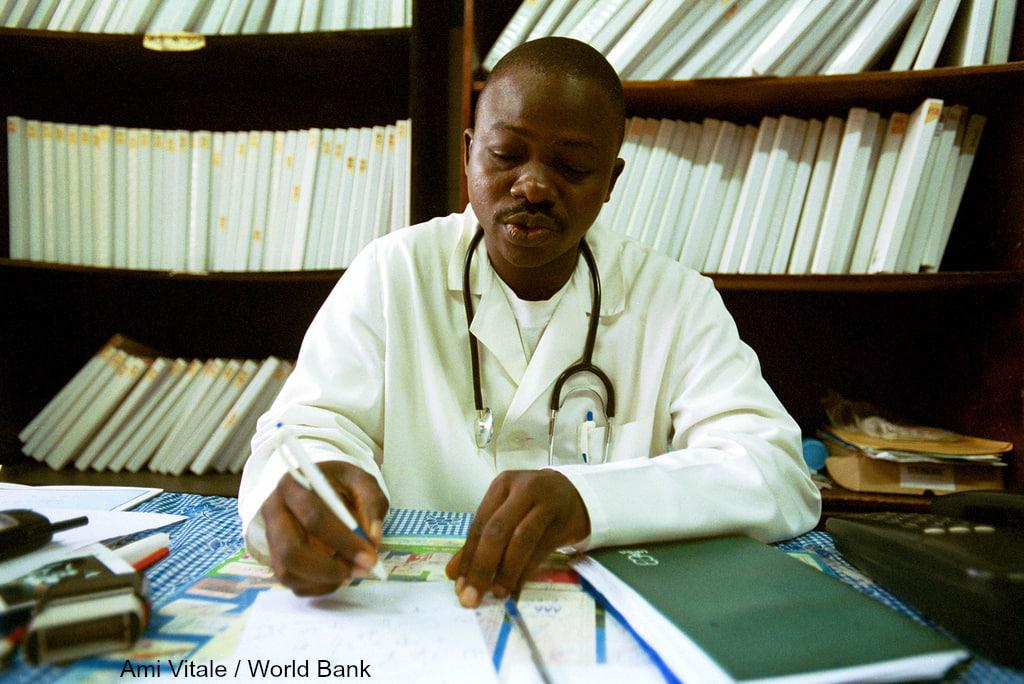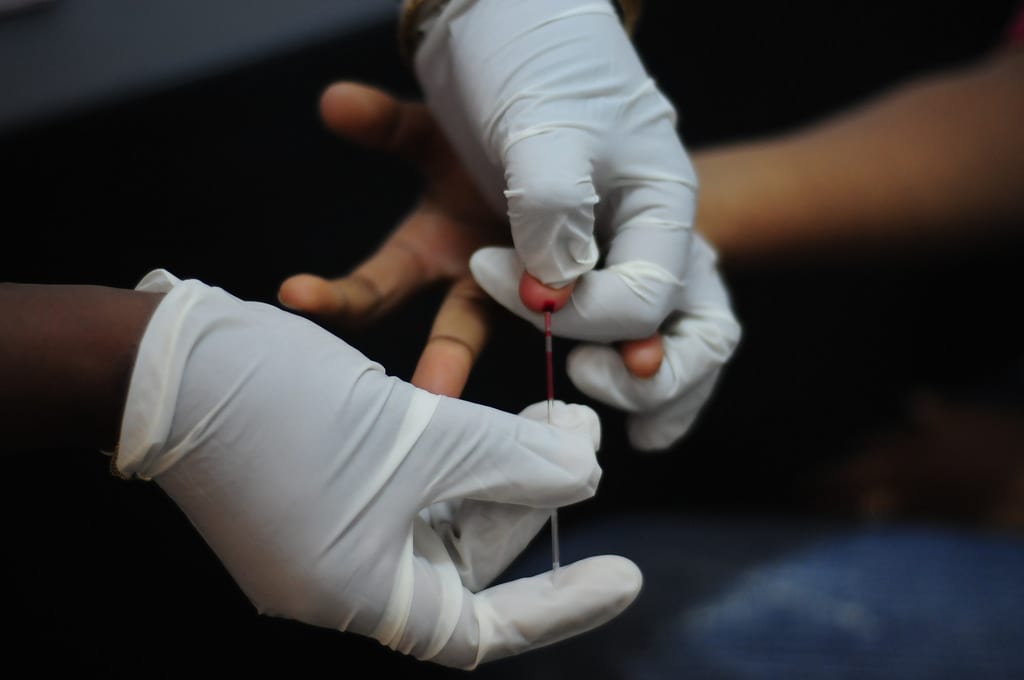Opinion: Doctors don’t need coercion to respond to need


In April, President Jacob Zuma promulgated the controversial and long-dormant Certificate of Needs (CoN) provisions in the National Health Act.
Failure to comply with the new law is punishable by a fine or five years imprisonment, or both.
Health care professional bodies across the country are attending a flurry of national health department “stakeholder consultation” workshops aimed at penning regulations to mitigate the sweeping new legal provisions – while consulting lawyers to protect their rights.
While the South African Medical Association (SAMA), the South African Dental Association (SADA), and the specialist body, the SA Private Practitioners Forum (SAPPF) agree with the law’s noble intentions, the bodies say they see it as a blunt and coercive instrument with grave unintended consequences.
What the legislation says
All existing healthcare services and establishments – and those intending to practice or establish themselves before 1 April, 2016 – must apply for a certificate of need by that date. National Health Director General Malebona Precious Matsoso then has power to grant or deny these applications. The regulations for the new provisions also have to be written and gazetted by then.
Matsoso and Health Minister Dr Aaron Motsoaledi have protested loudly that the law will not be used ‘arbitrarily or punitively’. Motsoaledi has promised that health care professionals in existing practices will not be forced to move but the provisions are fairly explicit.
A CoN will be required for:
- Anyone establishing, constructing, modifying or acquiring a health establishment or agency;
- Increasing the number of beds in, or acquiring prescribed health technology at a health establishment or health agency;
- a) Providing ‘prescribed’ health services or b) continuing to operate a health establishment or health agency after the expiration of 24 months from which date the relevant addition to the Act took effect, or 1 April 2014.
The Act requires the Director General of Health to adjudicate applications based on factors including a proposed facility’s financial viability, the equitable distribution of health services as well as whether a new facility will respond to the local disease burden or need.
The contentious provisions were drafted in 2003 by then National Department of Health Deputy Director General of Service Delivery Dr Kamy Chetty. The draft provisions were iced when protest erupted and SAMA threatened to take the government to the Constitutional Court to counter the threat to the movement and trade of its 17 000 doctor-members.
Given the unexpected nature of the legislation’s enactment 11 years later, it took nearly a month before a significant number of private healthcare professional bodies, hospital associations and NGOs were in a position to respond to the ‘fait accompli’.
Wide consultation – but will it make a difference?
[quote float=”right”]”Park Lane Clinic has more gynaes than Limpopo and Mpumalanga provinces put together.”
As of 10 July, Matsoso had held talks with more than two dozen health care professional bodies. She openly admits that many bodies are arriving with lawyers in tow.
Initial examination of the CoN’s legal provisions by detractors reveals that not only do they severely limit health care providers’ rights, but arguably those of patients in accessing care and medical information if existing practices close.
The provisions could also render existing medical businesses worthless and, perhaps most insurmountable, will create a mountain of expensive, bureaucratic red tape. More than 70 000 health care establishments will have to be registered by 1 April 2016. Health care providers also allege that the CoN clashes with at least six other existing laws, including the Competition Act, Consumer Protection Act and the Promotion of Equality and Prevention of Unfair Discrimination Act.
The administrative challenges already have the National Department of Health exploring legal options to postpone the 2016 deadline and openly admit that it’s unrealistic.
The Health Department is setting up a consultative committee consisting of five people representing all nongovernment professional health care bodies to take the regulation writing further. Those who have attended Matsoso’s briefings have 30 days in which to send back written submissions.
What the doctors say
Head of the country’s largest doctor body, SAMA Chairperson Dr Mzukisi Grootboom, says that in spite of well-meaning consultation, the primary legislation remains in place:
As South Africans, we all know what needs to be done, but we’re not hearing each other. It’s like a dialogue of the deaf. We implement things that pit us against each other. It’s a reflection of the kind and quality of legal professional advice they’re getting’.
SAMA would do all it could to ameliorate the situation, provided Dr Motsoaledi was genuine in ensuring co-operation and avoiding disruption of health services.”
Grootboom refused to rule out Constitutional Court action.
“The very intention of improving access may deny it, as doctors suddenly find themselves without licenses and unable to practice,” he said. “We cannot understand why government would promulgate a section of the law which they know is unconstitutional”.
[quote float=”right”]The private sector cannot be expected to supply services in areas of low or non-existent economic activity – and the CON will not solve that”
SAPPF CEO Dr Chris Archer says the National Department of Health’s central problem is how to deal with the mismatch between the distribution of disease and health services.
“The private sector cannot be expected to supply services in areas of low or non-existent economic activity – and the CON will not solve that problem,” he said. “Innovative public/private partnerships that do not depend on the development of fixed capital intensive infrastructure offer a possible solution – without the need for a CON”.
SADA CEO Maretha Smit added that within dentistry, “need” had yet to be defined.
“The concept of what constitutes ‘need’ has not even been properly defined, as there are no recent studies on epidemiology in oral health, so how could we possibly consider dental practice licencing on the basis of ‘need?’” she asked. “The only credible way forward for the Department of Health, is to withdraw the enactment of these contentious sections of the NHA, and to push the ‘restart’ button with a proactive consultation process.”
Like many other healthcare professional bodies, both SADA and the SAPPF are contemplating testing the provisions in the Constitutional Court.
Director General dons the velvet glove
Matsoso stressed she remains committed to consultation:
“This is not a command and rule, enforcement approach. I want to fix this via consultation on the regulation, reading the primary provisions with others in the National Health Act… We don’t want the kind of outcomes doctors fear.
“There’s nothing in there that says, ‘take people from towns and put them in townships – unless you want to attach redistributive polices to that – but the Act doesn’t say so. Even if it’s implied, it can’t be done contrary to the supreme law of the land, the Constitution”.
She said all consultations include presentations that map areas’ demographic and epidemiological profiles against the distribution of professional groupings.
Motsoaledi’s initial impromptu response to this journalist was:
I don’t understand all the objections – I mean (Netcare) Park Lane Clinic (in Parktown, Johannesburg) has more gynaes than Limpopo and Mpumalanga provinces put together. It will be difficult to force them to move – but should we allow more gynaes to move into that small space called Park Lane? I don’t think so!”
Motsoso said that she continues to see the CoN as an opportunity and that “some brilliant ideas” had come from the biggest objectors.
“If we do this right, we can come up with a do-able model,’ she said.
A major advantage of the CoN would be its use as a tool to ensure that norms and standards set by the Office for Healthcare Standards Compliance (OHSC) were adhered to regarding public sector equipment and staff distribution.
The OHSC had completed setting norms and standards for all public sector primary healthcare facilities, but is still busy working out staff distribution norms for tertiary health facilities, with a ‘major rationalization process’ due.
Matsoso said the CoN would also help the National Department of Health remove a long-standing thorn it its side by giving Pretoria the power to direct how provinces allocate their health budgets instead of being beholden to maverick, often hugely ineffective provincial political allocation.
One source said the National Department of Health was considering reallocating part of the R9 billion annual health infrastructure budget, given the huge healthcare staffing crisis, and using it ‘more productively’ to fund public/private partnerships, thereby increasing access to healthcare.
This is an edited version of an article set to appear in the August edition of the South African Medical Journal, which is published by SAMA.
Author
Republish this article
This work is licensed under a Creative Commons Attribution-NoDerivatives 4.0 International License.
Unless otherwise noted, you can republish our articles for free under a Creative Commons license. Here’s what you need to know:
You have to credit Health-e News. In the byline, we prefer “Author Name, Publication.” At the top of the text of your story, include a line that reads: “This story was originally published by Health-e News.” You must link the word “Health-e News” to the original URL of the story.
You must include all of the links from our story, including our newsletter sign up link.
If you use canonical metadata, please use the Health-e News URL. For more information about canonical metadata, click here.
You can’t edit our material, except to reflect relative changes in time, location and editorial style. (For example, “yesterday” can be changed to “last week”)
You have no rights to sell, license, syndicate, or otherwise represent yourself as the authorized owner of our material to any third parties. This means that you cannot actively publish or submit our work for syndication to third party platforms or apps like Apple News or Google News. Health-e News understands that publishers cannot fully control when certain third parties automatically summarise or crawl content from publishers’ own sites.
You can’t republish our material wholesale, or automatically; you need to select stories to be republished individually.
If you share republished stories on social media, we’d appreciate being tagged in your posts. You can find us on Twitter @HealthENews, Instagram @healthenews, and Facebook Health-e News Service.
You can grab HTML code for our stories easily. Click on the Creative Commons logo on our stories. You’ll find it with the other share buttons.
If you have any other questions, contact info@health-e.org.za.
Opinion: Doctors don’t need coercion to respond to need
by Guest Author, Health-e News
July 18, 2014
MOST READ
Prolonged power outage leaves hospitals in the dark for two days
There’s more to self-care than scented candles or massages, it’s a key public health tool
Malaria can’t be beaten without political will and more funding
Access to clean water and stable electricity could go a long way to addressing rising food poisoning in SA
EDITOR'S PICKS
Related



